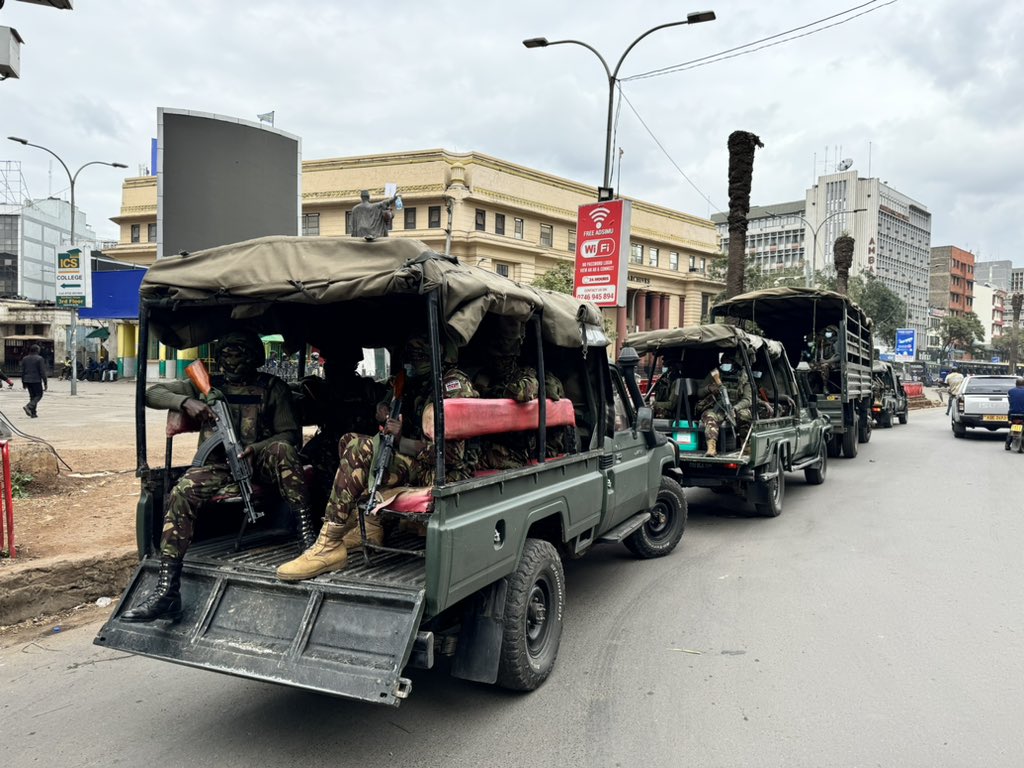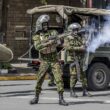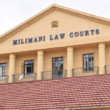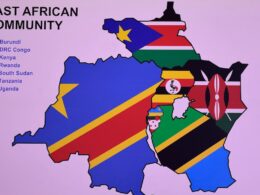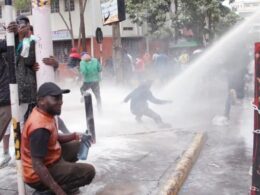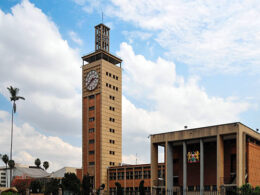NAIROBI,Kenya: Kenyan Section of the International Commission of Jurists (ICJ Kenya) and Amnesty International Kenya have released this statement to remind the Kenya Defence Forces and the National Police Service that the laws of Kenya have not been suspended and that Kenya is not in a state of emergency.
The situation in Kenya must not be interpreted as a conflict, and the military should not generally be deployed to police assemblies. The Kenyan army and all security apparatuses remain bound by the Bill of Rights in the Kenyan Constitution and international human rights law, including the International Covenant on Civil and Political Rights.
Following the 25 June gazette notice by Defence Cabinet Secretary Adan Duale and the National Assembly’s approval on 26 June, the army was deployed to support the National Police Service. After the military’s deployment on 27 June, human rights observers have documented the unlawful dispersal of peaceful gatherings, arbitrary arrest of protesters and their ill-treatment (including stripping protesters semi-naked). Our organizations have documented members of the public, content creators and press officers harassed and arbitrarily arrested for taking videos or photographs of the protests in different counties of the country.
Most worryingly, military/police officers in plain clothes are arresting protesters and bystanders and forcing them into unmarked vehicles. Further, we are gravely concerned by tear gas use in a Nairobi medical center set up to provide emergency medical services for the injured and the confiscation of patient lists.
We acknowledge the court’s order upholding the decision to deploy the military and requiring the State to take necessary measures to define the scope of deployment. We note the important provision that the Judiciary shall remain available to hear any public complaints arising from the military’s conduct during this deployment.
Within this context, we call on the Kenya Defence Forces and the National Police Service to adhere to the following guidelines:
Guideline 1: The principle of command responsibility
- The President of the Republic of Kenya is the Commander-in-Chief of the Kenya Defence Forces. The Inspector General of the National Police Service is accountable for all policing functions under the Police Act. The Police Act provides guidelines for the conduct of police officers and who they are accountable to.
- Military deployments to manage public order and police the right of assembly are unprecedented in Kenya and generally contrary to international human rights law and standards.
- Where, exceptionally, military forces are deployed, their role should be limited to supporting the law enforcement agencies and be preceded by appropriate training.
- The established chain of command must clearly reflect this supporting role, and it is critical that the Chief of Kenya Defence Forces publicly announces who bears command responsibility for the military deployment, what protocols guide this mission and the mechanisms and telephone numbers that members of the public may use to file complaints.
Guideline 2: Facilitate the realization of rights enshrined in our Constitution
Both Kenyan police and military officers must respect constitutional articles that:
- Protect all persons against arbitrary arrests, abductions and enforced disappearances. (CoK Article 29)
- Facilitate the right peaceably to assemble, demonstrate, picket and petition (CoK Article 37)
- Ensure freedom of association including the right to join and participate in public affairs (CoK Article 37)
- Protect freedom of movement (CoK Article 39)
Guideline 3: De-escalation, proportionality and restraint
- We call for the protection of the right to life. Even in circumstances where protesters are no longer peaceful (and so not protected by the right of peaceful assembly), they retain their other rights under Kenya’s Bill of Rights and the Covenant on Civil and Political Rights. This must be fully protected at all times.
- Police and military officers must exercise precaution and restraint and not use unnecessary or disproportionate force. Any force that involves a high likelihood of lethal consequences, particularly the use of firearms, may only be used to protect against an imminent threat of death or serious injury, and then only after de-escalatory approaches have been exhausted and after appropriate warnings have been given.
- We call for the immediate withdrawal of all security officers and security vehicles currently deployed without uniforms or license plates. As per Kenyan law, all officers must be in uniform and publicly display their names and service numbers and be transported in vehicles bearing license plates. Without this, it will be impossible to distinguish between law enforcement officers and violent thugs or opportunistic criminals.
Guideline 4: Oversight and Accountability
We call on the Kenya National Commission on Human Rights and the Independent Policing Oversight Authority to expand their oversight to cover both the police and military operations taking place nationally. Although the military are not within the purview of the IPOA Act, they must be placed under the command of law enforcement authorities and their deployment in a supporting law enforcement role renders them accountable under the Constitution.
- We call on the Office of the Director of Public Prosecutions to continue closely scrutinizing all charge sheets to avoid the criminalisation of non-violent protest.
- The Judiciary has declared that the courts will be available for families of the disappeared to file habeas corpus, and we call on affected Kenyans to make applications before the courts for the release of their loved ones.





